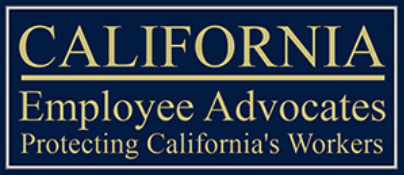Understanding Sick Days in California
We’ve all been there—a pesky flu bug strikes and you wake up feeling like a bulldozer ran over you. Of course, the last thing you want is to show up to work miserable and spread germs to your coworkers or customers. But you might wonder, can I get fired for calling in sick? In this article, we’ll shed light on how sick days work in California, your rights, and provide examples of what you can and cannot be terminated for.
All employers with employees working in California must comply with the paid-sick-leave law, with minimal exceptions. Employees not covered by the HWHFA include employees covered by qualifying collective bargaining agreements, in-home supportive services providers, certain employees of airlines, and retired annuitants working for government entities.
California has several local sick-leave ordinances in addition to state law, and these local laws often differ from the state requirements. For example, Los Angeles and Long Beach have paid-leave rules for hotel workers. Employers need to determine any local paid-sick-leave laws where the employees work and, if so, identify any differences in state and local requirements regarding eligibility, exclusions, and other factors. Employers with employees working in California locales with sick-leave ordinances, such as Berkeley, Emeryville, Los Angeles, Oakland, San Diego, and others, must comply with state and local laws.
Employees rehired within one year, who were already eligible for paid sick leave, can earn and use sick leave at the time of rehire.
Understanding Sick Days in California:
In California, employees are entitled to protected sick leave under the state’s labor laws. This means you have the right to take time off from work when you’re genuinely ill or need to care for a sick family member. Let’s break it down further:
Paid Sick Leave (PSL) is a permanent law in California that requires employers to provide at least 24 hours or three days off each year to most workers. This includes full-time, part-time, and temporary workers who meet these qualifications:
- Work for the same employer for at least 30 days within a year in California, and
- Complete a 90-day employment period before taking any paid sick leave
PSL can be used to:
- Recover from an illness, including physical and mental
- Seek medical diagnosis, qualified treatment, or preventative care
- To care for a family member, or family member equivalent, who is sick or needs medical attention, qualified treatment, or preventive care
Employers can choose to provide more PSL hours or days off. Employers can choose a PSL policy that provides all the hours at once, or the policy can require employees to earn paid sick leave hours in an accrual plan. Employees under an accrual plan must make at least one hour of paid sick leave every 30 hours.
Employees can decide when to use their paid sick leave, and employers are prohibited from interfering with this right. An employer must allow paid sick leave even when an employee does not provide details about needing sick leave or fails to produce a doctor’s note.
Sick Leave Accrual and Usage:
- The majority of employees in California earn sick leave at a rate of one hour for every 30 hours worked. You must work for the employer for more than 90 days before being eligible to use and days. Depending on your employer’s policies, you may be allowed to carry over unused sick leave from one year to the next. Familiarizing your company’s sick leave policy is crucial to ensure you know your rights and obligations.
Qualified Reasons for Taking Sick Leave:
- You can use your earned sick leave when you’re ill, injured, need medical care, or require time to care for a sick family member. This includes mental health-related issues as well. California law recognizes that employees need time to recover and prioritize their well-being. Updates to California state law, effective January 1, 2023, extend leave guidelines to include care for a designated individual that is a “family member equivalent” instead of the previous requirement that it be a blood-related family member. For example, this would now include time off to care for a qualified service dog in specific locales.
Certification Requirements:
- Sometimes, your employer may require a doctor’s note or medical proof if you take sick leave for over three consecutive days. This helps prevent abuse of sick leave policies and ensures that you genuinely need time off for health-related reasons. However, employers cannot require documentation for three or fewer qualified days and cannot discipline or discriminate against the employee in any way.
What Can You Be Terminated For?
While California protects employees taking sick leave, it’s essential to understand the limitations. Knowing your rights as an employee and communicating effectively and honestly go a long way toward preventing conflict. Here are examples of situations where termination may be permissible:

Exhaustion of Sick Leave:
- If you’ve used up all your accrued paid sick leave and continue to take unauthorized absences without a valid reason, it could lead to disciplinary measures up to and including termination. Therefore, managing your sick leave responsibly and communicating with your employer when you require additional time off is essential.
Fraudulent Use of Sick Leave:
- Using sick leave for non-medical reasons or providing false information to justify your absence may be grounds for termination. Honesty is always the best policy when it comes to taking sick leave. Unfortunately, calling in sick and being caught on social media somewhere else is an all too often occurrence and will result in a lack of trust with your employer and potential discipline up to and including termination.
Repeated Abuse of Sick Leave:
- Consistently taking excessive, unscheduled sick leave without valid reasons can strain the employer-employee relationship. While you have the right to use your sick leave, repeated abuse may result in disciplinary action or termination.
Examples:
To illustrate these scenarios, let’s meet Sarah, a hardworking professional from Whittier, California:
- Valid Use: Sarah wakes up with a high fever and flu-like symptoms. She immediately informs her employer and uses her accrued sick leave to take the necessary time off to rest and recover. Her employer understands the importance of prioritizing employee health and supports her decision.
- Unauthorized Absence: On the other hand, Sarah extended her weekend getaway without notifying her employer or obtaining approval for additional time off. Her absence without a valid reason and proper communication can put her job at risk.
- Fraudulent Excuse: Sarah calls in sick, claiming she has a severe migraine, but her social media posts tell a different story—a day at the beach with friends. If her employer discovers this inconsistency, it may lead to disciplinary action, including potential termination.
What To Do if You Are Terminated for Calling In Sick:
Calling in sick is a right that all employees in California earn and are entitled to. It’s essential to understand your sick-leave rights and responsibilities and not willfully abuse them. While employers generally cannot terminate you for legitimate use of sick leave, there are circumstances where termination may be permissible. To protect yourself and maintain a positive working relationship, it’s essential to use ill leave responsibly, communicate openly with your employer, and provide accurate information regarding your health condition.
The best rule of thumb is that your health should never be compromised and comes first. However, don’t hesitate to use your accrued sick leave if you are genuinely ill or need time off to care for a sick family member. As much as employers may not like it, sick days are there to protect the health of other employees and should be treated with a high level of importance.
If you believe you have been wrongfully terminated or faced retaliation for calling in sick, it’s crucial to seek professional advice. California Employee Advocates is here to support and guide you through the complex landscape of employment law. Our team of experienced professionals can help you understand your rights, assess your situation, and determine the best course of action.
In conclusion, calling in sick is a protected right in California for all employees, regardless of position or income. Understanding the rules and responsibilities surrounding sick leave allows you to confidently prioritize your health while maintaining a positive and productive work environment.
Remember, caring for yourself is vital for overall well-being and contributes to a healthier and more engaged workforce.
Disclaimer: The information provided in this article is for educational purposes only and does not constitute legal advice. Consult with an attorney or employment law professional for legal advice specific to your situation.
If you have any further questions or require assistance, please don’t hesitate to contact California Employee Advocates. Experienced Human Resources professionals are available for a confidential and free strategy session to discuss your situation and help you know your rights. We are here to support you and ensure that your rights are protected.
Contact Us:
Schedule a Free Strategy Session Now
info@californiaemployeeadvocates.com



Recent Comments